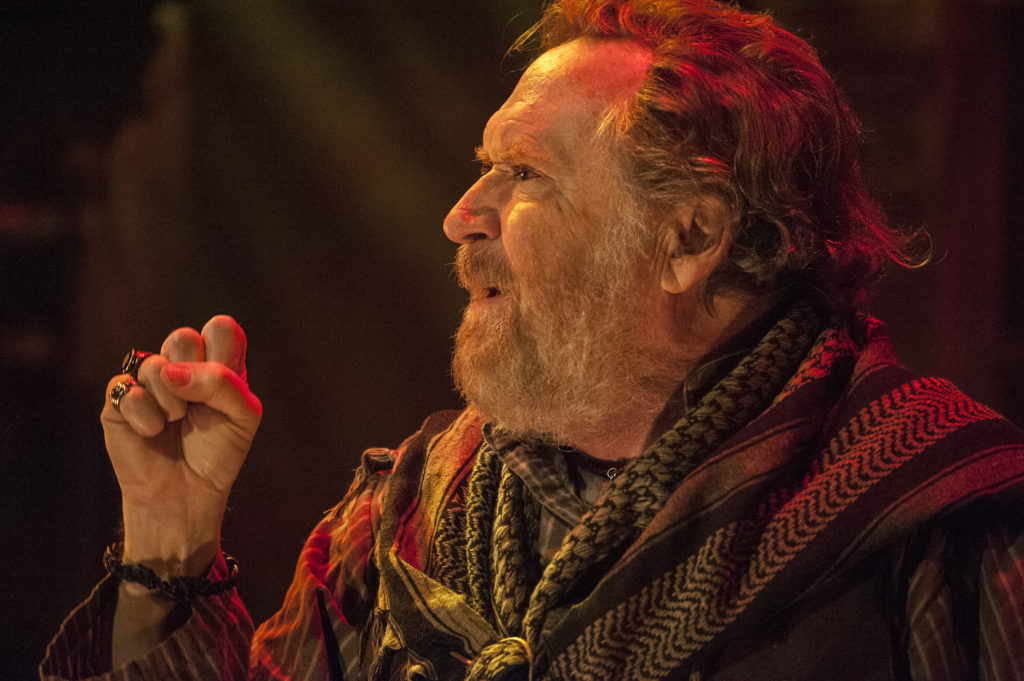
By Bob Bows (Read the original.)
I’m gonna lay down my sword and shield
Down by the riverside
I ain’t gonna study war no more
—Down by the Riverside (traditional African-American spiritual)
By going on the warpath, we know that we have done something bad, and we wish to hide our faces from Wakan-Tanka. —The Sacred Pipe: Black Elk’s Account of the Seven Rites of the Oglala Sioux, recorded and edited by Joseph Epes Brown, University of Oklahoma Press, Norman, OK, 1989, p. 92.
Putting aside what has been lost to cataclysms: History, as it has been handed down to us, is largely a recounting of a series of wars, justified by excuses that run the gamut of human behavior, as we see in Homer’s Iliad, rich portions of which form the backbone of this powerful adaptation by Lisa Peterson and Denis O’Hare, now in production by Boulder Ensemble Theatre Company.
This epic poem is generally considered to be the beginning of Western literature, and still sets a standard that remains 2,800 years later, for many of the same reasons that Aristotle noted in Poetics (written about 500 years after the poem was likely compiled from various sources by Homer), particularly its focus on just a small portion of the Trojan War, and the universality captured in those moments.
Chris Kendall, as The Poet, delivers a performance as stunning and emotion-packed as the poem itself, as if Homer himself had wandered into the theatre after weathering every war since he first composed these powerful lines. One can feel Homer’s passion and grief in Kendall’s voice and on his shoulders.
The passages delivered in the original Greek bring the full force of the language to bear with the fire of an incantation, oath, and beseeching of the gods of Mt. Olympus and elsewhere, including Hades, the sky, and the sea.
Peterson and O’Hare’s script deftly weaves the key elements of Homer’s story with the narrator’s observations in the present, which clarifies why this dramatic adaptation must be characterized as a classical tragedy, in the Greek sense, with the deaths occurring offstage, but visceral nonetheless.
The gritty set (Ron Mueller) and costumes (Brenda King), and the dramatic lighting (Richard Spomer) and sound (Daniel Horney), as well as director Stephen Weitz’s pressure-cooker environment, amplify the urgency of The Poet’s message.
As humanity stands at its crossroads, with a choice between slavery and evolution, Homer’s plea could not be more relevant. It is time that we overcome our ego and instincts and behave as we are capable. This may have been a utopian vision at one point, but now it is a necessity.
We must love one another or die.
—W. H. Auden, September 1, 1939
